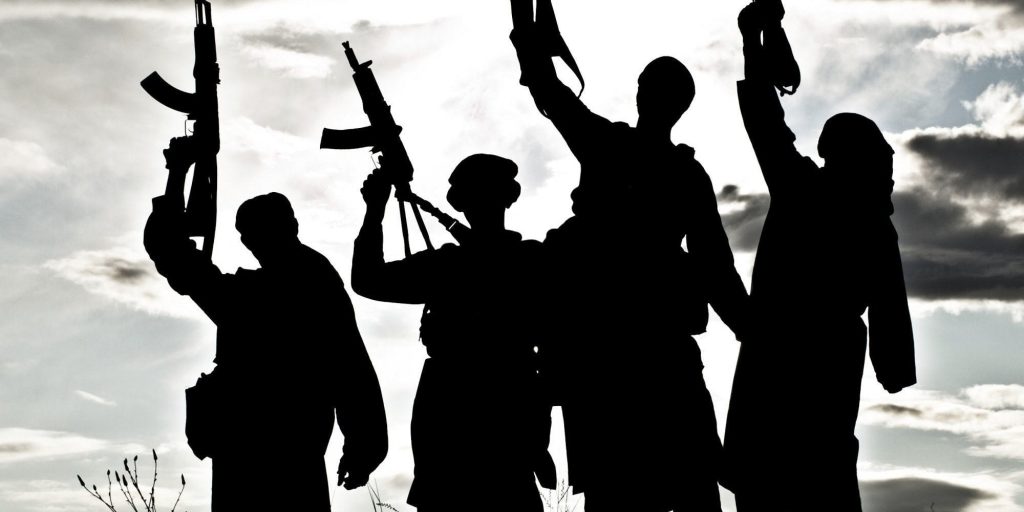by Alexandra Roberts
1 August 2019

Editorial
We have all seen the outcome of violent acts of terrorism . The attacks of 11 September 2001 were among the largest coordinated assaults that had ever been carried out. In the near two decades that have since passed, there has been a sustained multi-national effort to curb terrorism and to try to prevent further attacks. Troops have been deployed in kinetic operations around the world and intelligence agencies and analysts have increased in numbers to gather and interpret data and intelligence. An essential, but frequently overlooked, component of stopping terrorism is preventing terrorist groups from raising the funds necessary to enact their plans. The practicalities of such operations are little known and rarely focussed on in the public discourse on terrorism. However, like any other organisation or group, terrorists need to be able to finance their activities in order to carry out their objectives.
This leads to questions of where the money come from, how it is moved and how it can be stopped. We, the public, tend to know its source is something nefarious. Almost certainly illegal. That al-Qaeda probably did not check their credit rating or apply for a larger overdraft facility in order to fund the 9/11 attacks. But, beyond that, we have very little knowledge about their funding. We know that there are laws designed to prevent the financing of terrorist activities, but we do not tend know what they are, how they operate or who applies them. Even where these laws exist, not all countries and governments agree on how or whose should be implemented. Moreover, because of the asymmetric nature of terrorism, a tool that can be used stifle one group, may have no practical application to another, whilst at the same time the methods and modes used by terrorists to finance themselves are evolving. In turn, legal instruments that can be used to stop them must also evolve too.
This Strife series explores the relationship between money and terrorism. The series looks at who funds it, how they do it, what tools we have to prevent it and even how the laws to stop it can be misused. Its purpose is to highlight quite how complex and diverse the issues surrounding terrorism’s funding are. That it is not just a matter of finding the sources of their finance and shutting it down, but rather understanding the multifaceted political web it is entangled in.
Publication Schedule
In the first article (04/08), Dr Ian Ralby raises concerns about how low profile and seemingly benign criminal activities are used to fund global terrorism. He makes the case that law enforcement agencies need to recognise that terrorist groups will exploit these overlooked, lesser crimes as a way of raising funds and laundering money and must respond.
In the second article (06/08), Dr Vanessa Neumann explores the relationship between Venezuela’s Maduro regime and Hezbollah through long-standing links with post-revolutionary Iran. She tracks the history of the relationship between these groups and argues that ending the Maduro regime will deliver a severe setback for Hezbollah.
In the third article (08/08), Dr Michael Greenwald examines how Section 311 of the Patriot Act that pertains to correspondent banking relationships between the United States and other countries has been used to stop terrorism. He argues that in a new era of great power competition, it needs to be updated to be able to respond to the current global political and economic climate.
In the final article (10/08), Dr Jack Watling looks at how mass trails and vague charges are undermining efforts in the Middle East to stop the Shia system of tithes and its opaque financing practices potentially funding terrorism. He highlights that these questionable prosecutions are not only used as tools of state oppression, but that they are counterproductive in reaching a more transparent financial system.
Alexandra is studying for an MA in Terrorism, Security and Society at King’s College London. She is particularly interested in the role of women in Jihadist terrorism and US foreign security policy. Prior to starting her postgraduate studies, she worked as a political and security researcher, with a particular focus on the MENA region. She also done work focussing on the prevention of IUU fishing. Alexandra has a BSc in Oil and Gas management, with particular focus on the petrochemical industry in Iraq and its potential social, economic and political impacts on the country, using knowledge and experience gained working in the private security sector with a company specialising in the Middle East and Afghanistan.
Alexandra Roberts
Alexandra is studying for an MA in Terrorism, Security and Society at King’s College London. She is particularly interested in the role of women in Jihadist terrorism and US foreign security policy. Prior to starting her postgraduate studies, she worked as a political and security researcher, with a particular focus on the MENA region. She also done work focussing on the prevention of IUU fishing. Alexandra has a BSc in Oil and Gas management, with particular focus on the petrochemical industry in Iraq and its potential social, economic and political impacts on the country, using knowledge and experience gained working in the private security sector with a company specialising in the Middle East and Afghanistan.